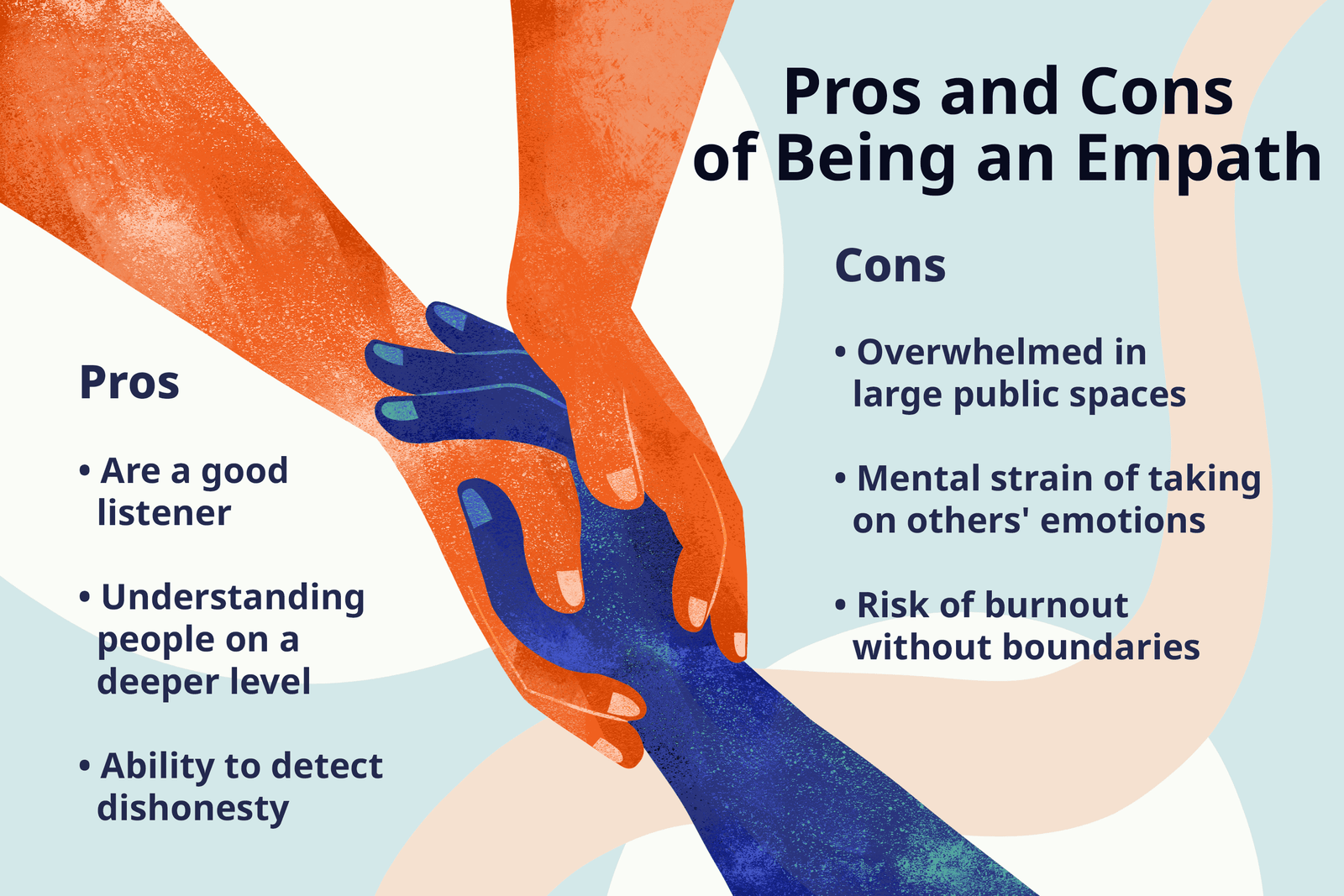Have you ever felt like you could deeply sense the emotions of those around you? Maybe you’ve felt overwhelmed in crowded places, or people often say you’re too sensitive. If this sounds like you, you might be an empath. Let’s explore what being an empath truly means and how to thrive with this unique gift.
What is an Empath?
An empath is someone who has an extraordinary ability to sense and absorb the emotions, energies, and even physical sensations of others. Empaths often feel what others feel as if those emotions were their own. Unlike simple empathy, which is the ability to understand others’ feelings, being an empath goes much deeper. For an empath, other people’s joys, sorrows, and anxieties can feel almost personal.
While empathy is common among people, empaths take this sensitivity to a new level. Crowded spaces, loud noises, or even intense emotions around them can often overwhelm them. This sensitivity can be both a blessing and a challenge that can sometimes leave empaths feeling misunderstood or exhausted.
Traits of an Empath
Still trying to figure out if you or someone you know is an empath? Here are some common traits that many empaths share:
- Deep Emotional Sensitivity: Empaths feel emotions with great intensity. Whether it’s joy, sadness, or anxiety, they experience it intensely.
- Absorbing Others’ Feelings: Empaths often absorb others’ emotions, whether positive or negative and may even physically feel other people’s pain.
- Intuition: They have a strong gut feeling or inner voice that often guides them.
- Overwhelmed in Crowded Spaces: Busy places like shopping centres, concerts, or parties can be overwhelming for empaths because of the sheer amount of energy they feel.
- Love for Nature and Animals: Empaths find great peace and comfort in nature and around animals. Being outdoors is often a refreshing escape.
These traits are just the tip of the iceberg. Every empath has unique experiences, and understanding these characteristics helps empaths better navigate their world.
Different Types of Empaths
Not all empaths are the same. Empaths can express their abilities in different ways, and they may identify with one or more of the following types:
- Emotional Empath
Emotional empaths feel the emotions of others as if they were their own. They can often tell when someone is sad, even if that person hasn’t said anything. This type of empath is very connected to the emotional energy of those around them.
- Physical Empath
Physical empaths have a unique connection to the physical sensations of others. They can often feel another person’s physical pain or discomfort. This can be challenging because they may experience symptoms without apparent cause, which can be confusing.
- Environmental Empath
Environmental empaths are susceptible to their surroundings, including the energy of spaces and places. They may feel happy and relaxed in natural environments but anxious or overwhelmed in chaotic or cluttered spaces.
- Intuitive Empath
Intuitive empaths have strong instincts and can easily read others. They can often sense lies, detect underlying motives, or even anticipate future outcomes based on their gut feeling. Intuition is a powerful tool for this type of empath.
- Animal Empath
Animal empaths share a deep connection with animals. They can understand animals’ emotions and often feel a sense of kinship or communication with them. This empath may be drawn to working with animals or caring for pets.
Challenges Faced by Empaths
Being an empath comes with its own set of challenges. Due to their heightened sensitivity, empaths can quickly become overwhelmed by their surroundings. Here are some common challenges empaths face:
- Emotional Overload: Constantly absorbing other people’s emotions can lead to emotional exhaustion. Empaths often need alone time to process these feelings and regain their energy.
- Difficulty Setting Boundaries: Empaths are natural caregivers and sometimes struggle to say “no.” They may put others’ needs above their own, leading to burnout or neglect of their well-being.
- Sensory Overload: Loud noises, bright lights, and strong smells can overwhelm empaths. This is especially true in crowded places where a lot of energy is present.
- Taking on Others’ Pain: Empaths may experience the physical or emotional pain of others as their own, which can leave them feeling drained or stressed.
These challenges can make life difficult, but learning to manage these issues is critical to thriving as an empath.
How to Thrive as an Empath
Although being an empath can be overwhelming, there are many ways to embrace this unique gift and use it to your advantage. Here are some strategies to help empaths thrive:
- Set Boundaries
Setting boundaries is essential for empaths. Learning how to say “no” when you feel overwhelmed or drained is necessary. Prioritizing your well-being allows you to help others healthily.
- Practice Self-Care
Self-care is crucial for empaths. Take time to relax and do activities that bring you joy. Whether it’s spending time in nature, meditating, or engaging in a favourite hobby, self-care can help empaths recharge their energy.
- Protect Your Energy
Visualizing a protective bubble or shield around yourself can help block out negative energies. Empaths can use grounding techniques, such as walking barefoot or deep breathing, to stay connected to the present moment and reduce energy absorption.
- Spend Time in Nature
Nature is incredibly healing for empaths. Spending time in a calm, natural setting can help empaths feel more balanced and grounded. It’s a great way to release the energies they may have picked up from others.
- Learn to Identify Your Emotions
Empaths can become overwhelmed when they can’t distinguish between their emotions and those of others. By practising mindfulness, empaths can learn to differentiate their feelings from those they absorb from others.
- Seek Support
Talking to a therapist or counsellor who understands what it means to be an empath can be beneficial. Support groups or connecting with other empaths can also provide a sense of community and understanding.
The Empath’s Unique Strengths
Empaths have many incredible strengths that make them unique. Their sensitivity allows them to connect deeply with others and offer genuine compassion. Here are some of the critical strengths of empaths:
- Deep Compassion: Empaths are naturally compassionate. They can make others feel heard, understood, and cared for. This compassion is one of their greatest gifts.
- Great Listeners: Empaths are excellent listeners. People often feel comfortable opening up to them, knowing they will be met with understanding and without judgment.
- Intuitive Understanding: Empaths have a powerful intuition that helps them understand people and situations more deeply. This can be very helpful in both personal and professional relationships.
- Creativity: Many empaths are highly creative. They are often drawn to artistic pursuits such as writing, painting, or music. Their deep emotions are a source of inspiration for their creative endeavours.
These strengths make empaths an invaluable part of the community. They bring understanding, kindness, and creativity to the world, making it a better place.
Empaths in Relationships
Empaths are deeply connected to the people around them, meaning relationships can be beautiful and challenging. Their natural sensitivity makes them loving and caring partners, but they also need a relationship that allows for balance and understanding.
Tips for Empaths in Relationships
- Communicate Your Needs: Empaths must communicate their needs to their partners. This includes setting boundaries and letting their partners know when they need space or time to recharge.
- Choose Supportive Partners: Being with someone who understands an empath’s sensitivity can make a big difference. A supportive partner will respect their boundaries and help them feel safe.
- Practice Emotional Detachment: Empaths often absorb their partner’s emotions, which can lead to feeling overwhelmed. Practising emotional detachment—learning to separate their feelings from their partner’s—can help maintain balance in the relationship.
Empaths need partners who are understanding, patient, and supportive. Relationships can flourish when partners are committed to understanding each other’s needs.
A Table of Empath Traits and Self-Care Strategies
Trait of an EmpathSelf-Care Strategy
Emotional Sensitivity Practice mindfulness
Overwhelmed by Crowds Spend time in nature
Difficulty Saying No Set clear boundaries
Absorbs Others’ Emotions Visualize protective energy shield
Feels Drained Often Engage in regular self-care routines
Common Myths About Empaths
There are many myths about empaths that can lead to misunderstandings. Let’s debunk some of the most common myths:
Myth 1: Empaths Are Weak
One common myth is that empaths are weak or overly emotional. On the contrary, empaths are powerful. They face the world with heightened sensitivity, which takes a lot of courage. Their ability to feel deeply is a strength, not a weakness.
Myth 2: Empaths Can Always Tell What Others Are Thinking
While empaths are highly intuitive, they can’t always read people’s thoughts. They may sense emotions or pick up on non-verbal cues but are not mind readers.
Myth 3: Empaths Are Just Introverts
Not all empaths are introverts. While many empaths prefer solitude to recharge, some are extroverted and enjoy socializing—though they may still need time to recover afterwards.
We can better understand and appreciate the empath’s unique perspective by debunking these myths.
How to Support an Empath
If you have an empath in your life, there are many ways to support them. Understanding their needs and showing empathy in return can make a huge difference:
- Respect Their Need for Space: Empaths often need time alone to recharge. Respecting their need for solitude is essential for their well-being.
- Be a Good Listener: Empaths are always there for others but also need someone who listens. Be patient and offer a listening ear.
- Help Them Set Boundaries: Encourage empaths to set healthy boundaries. Offer support if they feel overwhelmed or need help saying “no.”
These simple actions can go a long way in helping empaths feel supported and understood.
Conclusion: Embracing the Empath Within
Being an empath is both a gift and a challenge. Empaths have a unique ability to connect with others on a deep level, offering compassion and understanding that is truly remarkable. While they face emotional overload and sensory sensitivity challenges, learning to manage these difficulties can help empaths thrive.
By setting boundaries, practising self-care, and embracing their gifts, empaths can use their unique abilities to improve the world. If you’re an empath, remember that your sensitivity is your strength, and with the right tools and support, you can lead a balanced, fulfilling life as an empath.

